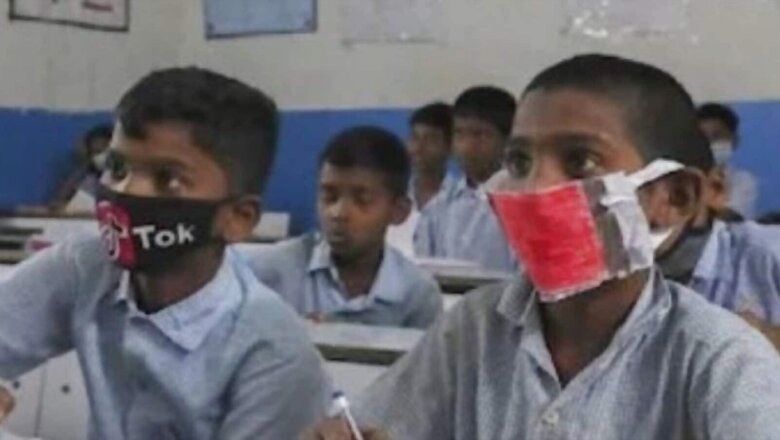
views
Climate change is not yet sufficiently integrated into the education framework, and only 50 per cent of the countries emphasise on the subject in their national-level laws, policies or teaching plans, according to the Global Education Monitoring (GEM) report by UNESCO. Profiles Enhancing Education Reviews (PEER), released by the GEM team in the backdrop of the UN Climate Change Conference underway in Glasgow, is aimed at describing laws and policies of countries on key themes in education so as to improve the evidence base on the implementation of national education strategies.
“Only 75 per cent countries cover climate change subject in their national curricula framework while only 40 per cent of them have education laws that cover climate change. At least 45 per cent of the countries include the subject in their education sector plans and strategies,” according to the report. “References are mainly found at primary and secondary education levels (90 per cent). Fewer countries have frameworks to support climate change education in Technical and Vocational Education and Training System (TVET), higher education (70 per cent) and teacher training education (55 per cent),” it added.
The report mentions countries that stand out in the progress made in climate change education. “In Italy, climate change is included in the curriculum and students are encouraged to assume ecologically sustainable behaviours and personal choices. As of 2020, climate change education became mandatory across Italian schools as part of civics education,” the report said.
“Indonesia updated its National Curriculum Framework in 2013 which includes climate as a core competence as part of the attitudes, skills, and knowledge that students should achieve. The Ministry of Education and Culture also organises climate change events, such as the regular Climate Change Education Forum and Expo, which focuses on climate change education topics and provides networking spaces for schools and educators,” the report said. It noted that Colombia has assigned a key role to its Ministry of Education in Climate Change Education (CCE) and has adopted a strong legal and policy framework on the issue.
“It adopted a National Climate Change Policy in 2017, which sets out five strategies addressing information dissemination on science and technology, education, training and public awareness and climate change management planning and financing. The policy includes objectives to mainstream climate change into the formal education system,” it said. “Education is a critical tool to help populations understand and address the impacts of climate change, and to encourage changes in attitudes and behaviour to support more sustainable lifestyles and develop new skills and knowledge. Climate change education can enhance the resilience of vulnerable groups and communities with mitigation and adaptation strategies, especially in low-income countries, that risk being disproportionately affected by these changing conditions,” the report added.
Read all the Latest Education News here




















Comments
0 comment